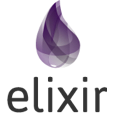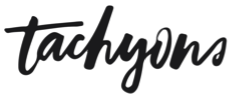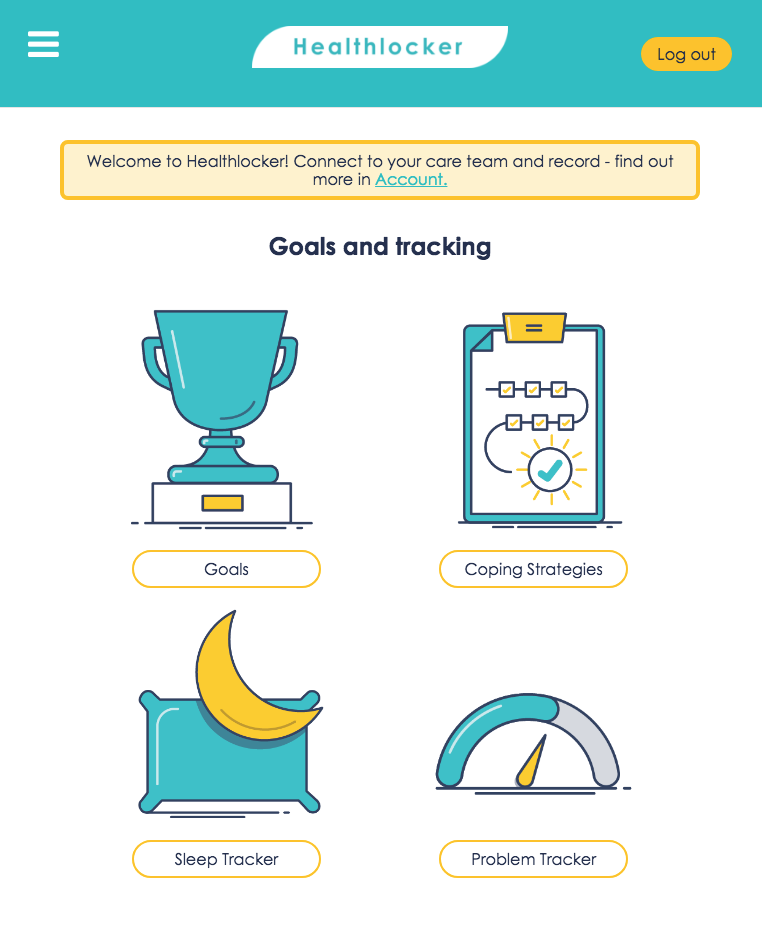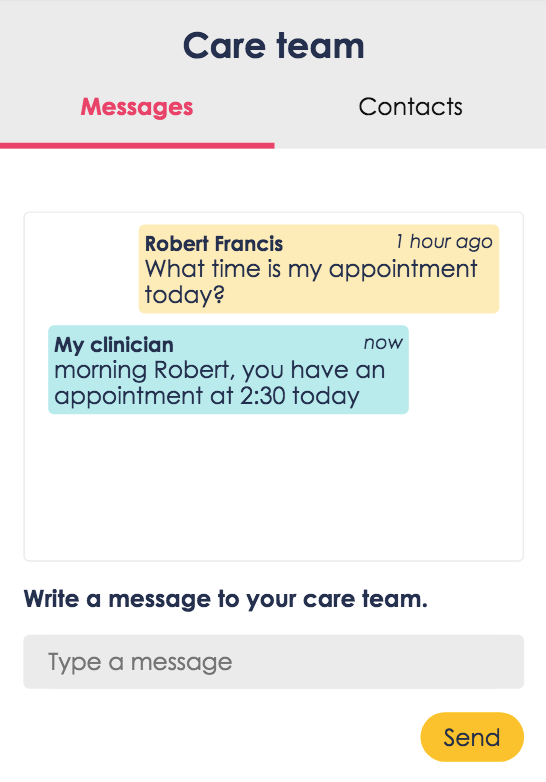Project: Healthlocker
Problem Overview
Following a few months of a research and discovery phase, South London and Maudsley NHS Trust came to the conclusion that what was most needed in mental health right now is self-management between appointments.
Doing this in a way that was effective and engaging enough to be used by people daily was in itself a challenge, but getting buy-in from clinicians (who would be the ones recommending it to their patients) and showing them the value was a whole new level!
Approach
South London and Maudsley and their partners came to us with a myriad of feature requests as well as differing priorities from each stakeholder and no experience of agile.
We focused on the problem each was looking to solve for each of 3 user groups (patients, clinicians & primary care givers) customising the experience for each and prioritising what would be most important. In doing this, we began by building the public-facing ‘tips’ portion of the app, moving onto the logged in experience after this.
Taking a truly agile approach, we worked closely to design and develop each feature as and when it was required, based on numerous user testing sessions with beta users.
Solution
The requirements for near realtime messaging between users and clinicians, high reliability, fast load times and scalability made our proposed stack a no-brainer: Elixir and Phoenix with PostgreSQL and tachyons for UI styling.
Patients can use sleep trackers, individual custom problem trackers, a
diary, direct messaging, set goals & coping strategies and more, whereas
clinicians can see all of the patients’ information
(both from the application and NHS’ ePJS system) and interact with them at any time.
Crucially, Healthlocker allows primary caregivers to connect not only
to the patients but also to the clinicians, allowing them to feel heard
and contribute to their loved ones’ care.
Deployment to production brought its own unique set of challenges to overcome with the Trust’s requirement to deploy to an Azure environment managed by them.
Key Functionality
- Patients can record and track their sleep patterns, set goals & log coping strategies
- Direct messaging gives users access to support from their team of clinicians
- Integration with South London and Maudsley NHS Trust's ePJS system allowing clinicians to log in from there & keep tight control over patient information access
- Deployment to complex Microsoft Azure environment
- Fully open source, it has already been used as a base for a children's mental health app for Oxleas NHS Foundation Trust, also built by dwyl
Technologies







Project Length
14 sprints with continuous users testing, both with patients and clinicians
Implementation Team
3 Developers QA Code Reviewer Scrum master


